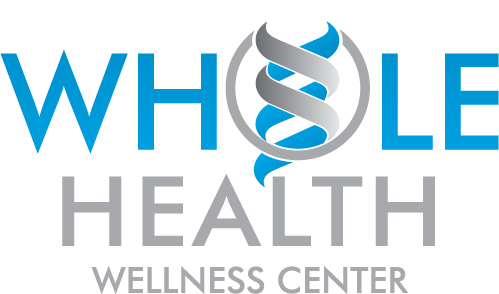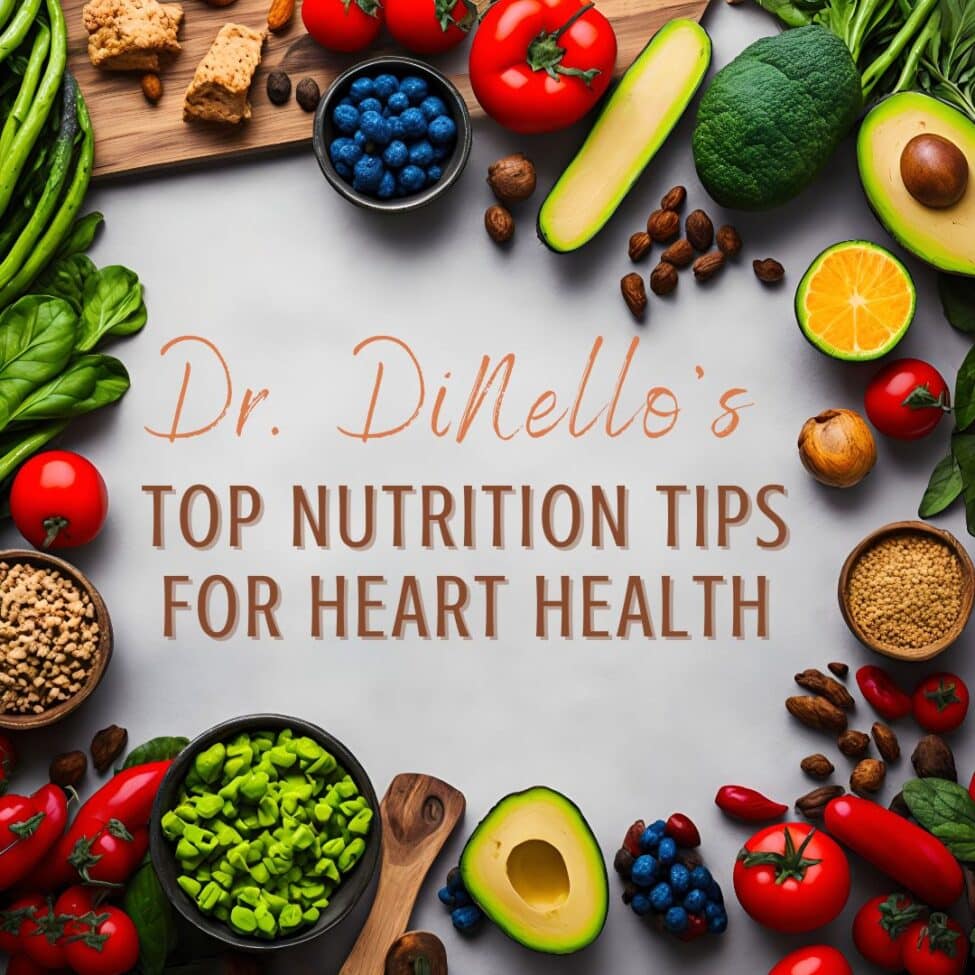by Dr. Katie DiNello, ND
Cardiovascular disease is the leading cause of death worldwide, and its prevalence is expected to continue to rise over the next 15 years. According to the American Heart Association (AHA), one in three people will be affected by some form of cardiovascular disease during their lifetime. The AHA and World Health Organization define cardiovascular disease as a group of disorders affecting the heart and blood vessels. The two most common clinical manifestations of cardiovascular disease are coronary artery disease and ischemic stroke but also include atherosclerosis, heart attacks, heart failure, arrhythmias, peripheral arterial disease, and many other conditions.
Top Risk Factors for Developing Cardiovascular Disease:
- Ambient particulate matter air pollution
- Household air pollution from solid fuels
- Lead exposure
- High systolic blood pressure
- High LDL-cholesterol
- High BMI
- High fasting plasma glucose
- Kidney dysfunction
- Poor diet
- Tobacco – firsthand and secondhand
- Alcohol
- Low physical activity and sedentariness
- Stress
Assessing your Risk:
The first step in treating cardiovascular disease is to assess your overall risk for it. Blood work is one of most common ways to accomplish this. Below is a list of cardiovascular markers I run in all my patients to fully understand their risk of developing cardiovascular disease. Some of these markers like total cholesterol and LDL-Cholesterol may be familiar to you. However, research demonstrates that markers such as Apolipoprotein B and LDL Particle Number are more accurate markers of cardiovascular disease risk.
- Total Cholesterol
- LDL-Cholesterol
- HDL-Cholesterol
- Apolipoprotein B
- Apolipoprotein (a)
- LDL Particle Number
- Small Density LDL
- LPPLA2
- LDL Size Pattern
- hsCRP
Nutrition for Heart Health:
Research on nutrition for preventing and treating cardiovascular disease is not straightforward and is continuing to evolve. Many strategies we once thought to be true have been disproven with larger, better-designed trials. The best example of this progression of research is the thought around saturated fat. Starting in the 1950s, early research correlated total fat and saturated with the development of cardiovascular disease. In the 1990s, the US and UK dietary guidelines started recommending reducing saturated fat consumption to reduce the risk of cardiovascular disease. Even current AHA guidelines recommend Americans reduce saturated fat to <10% of total daily calories for heart health. However, in 2020, the Journal of the American College of Cardiology published an article exploring the relationship between saturated fat and cardiovascular disease. It concluded, “Some meta-analyses find no evidence that reduction in saturated fat consumption may reduce CVD incidence or mortality, whereas others report a significant—albeit mild—beneficial effect. Therefore, the basis for consistently recommending a diet low in saturated fat is unclear.” In fact, a famous trial called the PURE Study of 135,000 people across 18 countries and 5 continents found an increased consumption of all types of fat including saturated and polyunsaturated was associated with a lower risk of death, a neutral association with cardiovascular disease, and a lower risk of stroke. Due to more recent randomized controlled trials and cohort studies, we can no longer recommend reducing saturated and overall fat to reduce cardiovascular disease risk. The health effects of fat depend on the degree to which they have been processed. Processing fats and oils introduces unhealthy compounds that have deleterious effects on our health.
Based on current research, these are my top tips for nutrition for cardiovascular health:
- Limit ultra-processed foods, refined sugars, and processed/hydrogenated oils
- Do eat unprocessed extra virgin olive oil, sesame oil, and coconut oil in moderation
- Incorporate polyunsaturated fatty acids, including omega-3 fatty acids from nuts, seeds, and fatty fish like salmon, mackerel, and sardines
- Eat colorful fruits and vegetables rich in polyphenols to protect the walls of your arteries
- Consume anti-inflammatory herbs and spices including garlic, onions, turmeric, etc on a regular basis
- Eat foods high in potassium and L-arginine to help keep blood pressure normal
- Limit alcohol
- Eat 20-30 grams of fiber daily from whole grains, complex carbohydrates, vegetables, and legumes
- Limit overly-cooked meats at high heat to reduce the formation of advanced glycation end products
- Limit sucrose and fructose
- Focus on an overall low-glycemic diet to prevent insulin resistance and diabetes
If you’re looking to fully assess your risk of cardiovascular disease and discuss the best ways to prevent and/or treat it, be sure to schedule with one of our naturopathic doctors today!
1. Behbodikhah J, Ahmed S, Elyasi A, Kasselman LJ, De Leon J, Glass AD, Reiss AB. Apolipoprotein B and Cardiovascular Disease: Biomarker and Potential TherapeuticTarget. Metabolites. 2021 Oct 8;11(10):690. doi: 10.3390/metabo11100690. PMID: 34677405; PMCID: PMC8540246.
2. Mensah, G, Fuster, V, Murray, C. et al. Global Burden of Cardiovascular Diseases and Risks, 1990-2022. J Am Coll Cardiol. 2023 Dec, 82 (25) 2350–2473. https://doi.org/10.1016/j.jacc.2023.11.007.
3. Cromwell WC, Otvos JD, Keyes MJ, Pencina MJ, Sullivan L, Vasan RS, Wilson PW, D'Agostino RB. LDL Particle Number and Risk of Future Cardiovascular Disease in the
Framingham Offspring Study – Implications for LDL Management. J Clin Lipidol. 2007 Dec;1(6):583-92. doi: 10.1016/j.jacl.2007.10.001. PMID: 19657464; PMCID: PMC2720529.
4. Behbodikhah J, Ahmed S, Elyasi A, Kasselman LJ, De Leon J, Glass AD, Reiss AB. Apolipoprotein B and Cardiovascular Disease: Biomarker and Potential Therapeutic Target. Metabolites. 2021 Oct 8;11(10):690. doi: 10.3390/metabo11100690. PMID: 34677405; PMCID: PMC8540246.
5. Arne Astrup, Faidon Magkos, Dennis M. Bier, J. Thomas Brenna, Marcia C. de Oliveira Otto, James O. Hill, Janet C. King, Andrew Mente, Jose M. Ordovas, Jeff S. Volek, Salim Yusuf, Ronald M. Krauss, Saturated Fats and Health: A Reassessment and Proposal for Food-Based Recommendations: JACC State-of-the-Art Review, Journal of the American College of Cardiology, Volume 76, Issue 7, 2020, Pages 844-857, ISSN 0735-1097, https://doi.org/10.1016/j.jacc.2020.05.077.

